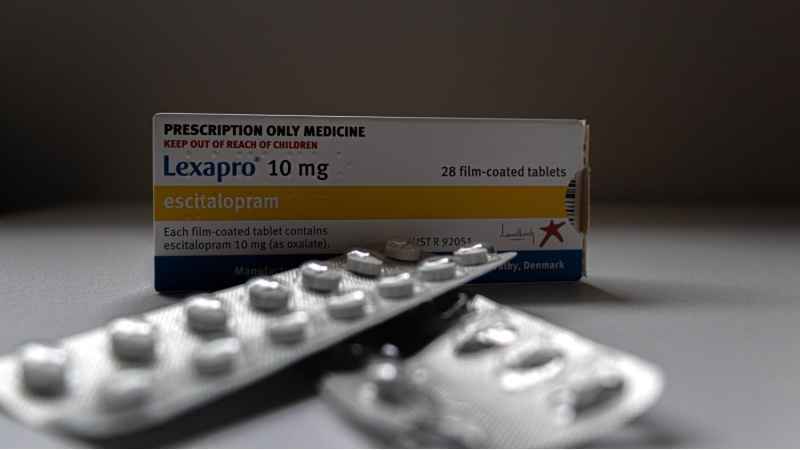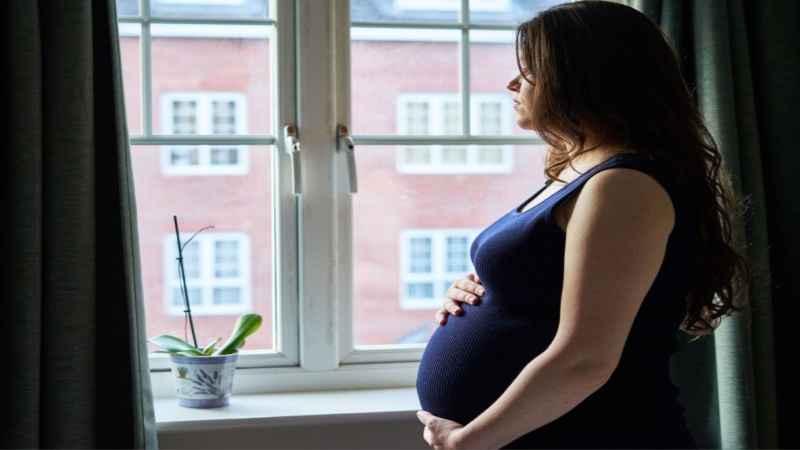
Pregnancy is a new beginning for happiness but also for fear, Anxiety and depression at times. When it comes to using any medication for conditions like depression, Lexapro may peep into the picture. Although Lexapro is a widely accepted medication for depression, pregnancy invites a lot of confusion whether to use or to stop taking Lexapro further.
In this article lets understand what Lexapro is ,how Lexapro helps treating depression, is it safe to continue the medication while pregnant, what are the risks to mother and baby and its safety. When to consult the doctor. What are its effects on newborn and breastfeeding?
What is Lexapro?
Lexapro is a brand name for a drug called Escitalopram. It is prescribed for treating depression and anxiety disorder. It is almost similar to citalopram in action which is also commonly prescribed as Anti depression and Anxiety (1). It comes under a class of Antidepressants called Selective Serotonin Reuptake Inhibitors (SSRIs).
Is Intake of Lexapro Safe During Pregnancy?

Lexapro comes under the Selective Serotonin Reuptake Inhibitors (SSRIs) category of Antidepressants. It is presented under category C by USFDA for pregnancy safety. (2) There are very limited studies of escitalopram on pregnant women regarding safety. Many studies report taking lexapro can cause respiratory problems with newborn, withdrawal effects on both mother and newborn if taken in the last trimester. It is always better to take a doctor’s consultation before taking lexapro.
How Much Lexapro Is Considered Safe?
Lexapro is available in 10mg and 20 mg doses.(2a) It is up to your doctor to decide the safe dose and dosage depending on your ongoing condition.
Side Effects of Lexapro

Lexapro can show some side effects.
Common side effects that can be manageable include
- Diaphoresis (excessive sweating)
- Dry mouth
- Nausea
- Insomnia and drowsiness
- Dyspepsia,
- Anxiety
- Fatigue
Occasionally you may experience diarrhea, loss of appetite, or tremors.
Very few may experience rare side effects like Sinusitis, sexual dysfunction, agitations, and a decrease in libido (3)
Does Lexapro Increase Risk of Miscarriage if Taken in The First Trimester?

The first trimester is a very tough road to cross. Any usage of drugs will have a risk of miscarriage. Taking antidepressants may have an increased risk of miscarriage (4). However, few research did not find any increased risk of miscarriage while taking Lexapro(Escitalopram) (1a). The dosing is highly individual depending on your condition and outcome.
Does Lexapro increase risk of developmental issues if taken in the first trimester?
No. Lexapro does not increase the risk of any developmental issues in newborns if taken in the first trimester. No evidence of an increase of malformations in the fetus on using Lexapro. The expected outcome is an increased risk of low birth weight in the newborns rather than facing developmental issues or malformations.(5). According few studies we need not worry about Even after birth there is no increased risk of autism in babies or ADHD development in the future.
What About Third Trimester Risks?
As mentioned earlier the two main things to be considered during the third trimester is low birth weight in newborn and withdrawal effects.Preterm labor in few pregnancies
Low birth weight: Many studies have stated that there is a chance of lower birth weight in newborns less than 2500 gms on using lexapro, especially in the third trimester. Few pregnancies may end up in preterm labor as another complication.(5a)
Withdrawal effects: Lexapro use in third trimester can cause withdrawal signs in babies like
- Excessive crying
- Poor feeding
- Irritability,Jitteriness
- Tremors or shaking
- Sleep disturbance
- Respiratory distress
As a mother, you can also experience withdrawal symptoms if you suddenly stop using Lexapro. It is likely your baby may also experience the same symptoms after birth. Usually, the symptoms go away after a couple of weeks after birth. Few babies may need to stay in the ICU until the symptoms get better. (1b)
On a rare instance, taking Lexapro in the second half of pregnancy may cause pulmonary hypertension in newborns but the rate is quite low for 1/1000 births.(1c)
What happens If I Stop Taking Lexapro While Pregnant ?

Often there is a dilemma whether to continue the medication or not if you get to know that you are pregnant. The recommendation is not to stop your medication but necessarily talk to your doctor. Your doctor can assist in any alteration if required regarding the medication and assure you.
Abruptly stopping the medication can lead to severe relapse and psychiatric emergencies which are unsafe for both mother and fetus. Please do not hide about the medications or about conditions you are having with your healthcare practitioner.(6)
When To Consult a Doctor?
- If you found out you are pregnant and on Lexapro it’s better to consult the doctor rather than stop the medication.
- Your health care provider and you can decide to continue the medication or select an alternative approach like counseling or therapies or whatever is required to not to affect your pregnancy.
- If you find difficulty with managing the side effects or experiencing any adverse effects during pregnancy please consult your doctor immediately.
- Do not stop the medication abruptly even after giving birth. Tampering method of dosing should be followed while stopping the medicine.
- Taking Lexapro during breastfeeding also needs a doctor’s suggestion. Although a very low amount of Lexapro is passed through breast milk doctors recommendation on dose and monitoring the effects on the baby and withdrawal symptoms is required.
Using Lexapro during pregnancy should be discussed with healthcare providers. Yes, there are pros and con’s in using this medication. But stopping the antidepressants without proper treatment can cause severe relapse of depression and it is more harmful to mother and baby than treating the condition with Antidepressants like Lexapro. Clinically most of the research studies recently deny any developmental issues or birth defects from using Lexapro. Of Course, there should be good clinical management for withdrawal symptoms in both mother and baby and taking care of low birth weight in the babies. Coordinating with your health care providers can help both the overall safety of mother and baby throughout and after pregnancy.
FAQ’s
1. Which Antidepressant Is Safe During Pregnancy?
SSRIs selective serotonin reuptake inhibitors are generally considered as antidepressants. Few examples include citalopram, escitalopram, etc.
2. What Is A Safe Alternative To Lexapro During Pregnancy?
Any other SSRIs like citalopram, sertraline, fluoxetine can be safe alternatives to Lexapro. Discuss with your healthcare provider for better suitable alternatives.
3. Does Lexapro Cross The Placenta?
Yes, Lexapro can cross the placental barrier and can reach the baby in the womb but predominantly may not increase the risk of birth defects.
References
- Mother To Baby | Fact Sheets [Internet]. Brentwood (TN): Organization of Teratology Information Specialists (OTIS) – https://www.ncbi.nlm.nih.gov/books/NBK582639/
- Escitalopram Pregnancy and Breastfeeding Warnings – https://www.drugs.com/pregnancy/escitalopram.html#
- Hodgson, Barbara and Kizior, Robert, Saunders Nursing Drug Handbook 2012, Elsevier, St. Louis, MO. ISBN: 978-1-4377-2334-2. Briggs, Gerald, Freeman, Roger and Yaffe, Sumner, Drugs in Pregnancy and Lactation, 9th Ed., Wolters Kluwer/Lippincott Williams & 3. Wilkins, Philadelphia – https://americanpregnancy.org/healthy-pregnancy/medication/escitalopram-during-pregnancy/
- Almeida ND, Basso O, Abrahamowicz M, Gagnon R, Tamblyn R. Risk of Miscarriage in Women Receiving Antidepressants in Early Pregnancy, Correcting for Induced Abortions. Epidemiology. – https://www.ncbi.nlm.nih.gov/pubmed/27031036
- Klieger-Grossmann C, Weitzner B, Panchaud A, Pistelli A, Einarson T, Koren G, Einarson A. Pregnancy outcomes following use of escitalopram: a prospective comparative cohort study. J Clin Pharmacol. 2012 May;52(5):766-70. – https://pubmed.ncbi.nlm.nih.gov/22075232/
- Liu X, Molenaar N, Agerbo E, Momen NC, Rommel AS, Lupattelli A, Bergink V, Munk-Olsen T.Antidepressant discontinuation before or during pregnancy and risk of psychiatric emergency in Denmark: A population-based propensity score-matched cohort study. – https://pubmed.ncbi.nlm.nih.gov/35100270/

